10. We Own the Night
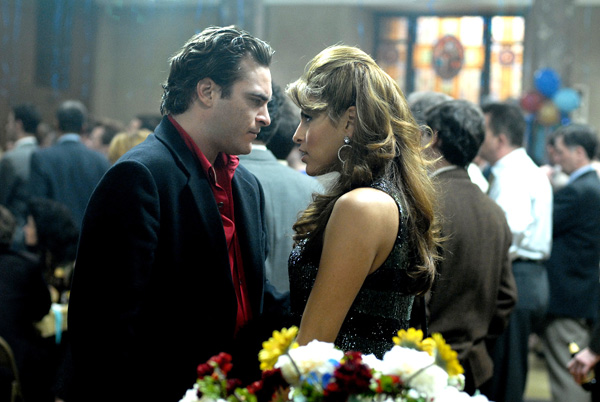
“We Own the Night” was the second collaboration between Phoenix and James Gray. Released in 2007, the film is set in the late 1980s and follows the NYPD Street Crimes Unit through the story of two brothers. One of them (Joseph, played by Mark Wahlberg) is a cop, the other (Bobby, played by Phoenix) a nightclub manager.
Bobby has ties with the Russian mafia, and that creates a clear conflict with his brother’s profession, and ethics. Soon, this conflict becomes extremely serious: after the police raid Bobby’s club, a war escalates between the Russians and the policemen, and Bobby finds himself forced to choose on which side to stand.
Phoenix plays the most interesting character of this crime thriller, and certainly the most conflicted. The story stresses how he has two father figures, one being his biological father (Robert Duvall), also a policemen, while the other is a notorious Russian mobster. The film takes Bobby through many difficult choices, many of which regard his lover (Eva Mendes), and Phoenix gives a good performance of a man who suddenly has to change his perspective on life and its responsibilities.
9. I’m Still Here
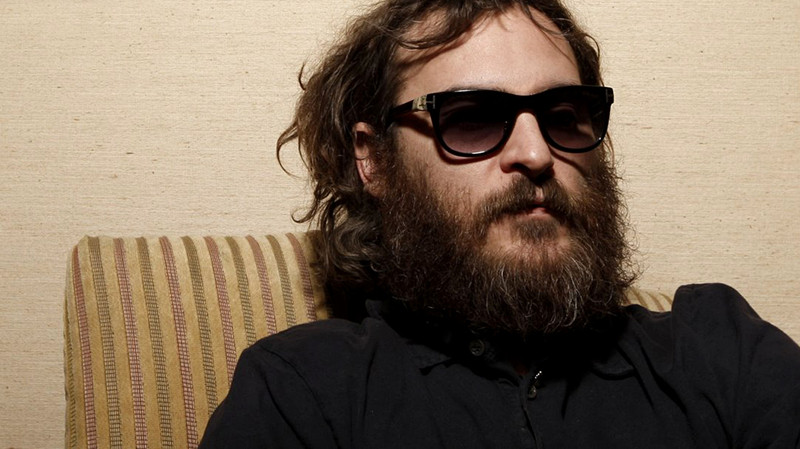
The appearance Phoenix made in character (as himself) on the Late Show with David Letterman should probably deserve a spot of its own on this list. It was an immediately iconic piece of entertainment, and in retrospect, the fact that many did not suspect it was all an act proves just how convincing Phoenix can be even when playing absurd characters.
In this case, the absurd character was himself: teaming with then brother-in-law Casey Affleck, Phoenix pretended to give up his acting career to pursue one in the rap scene, a ridiculous concept but somehow believable as one of the breakdowns many Hollywood stars have.
The film only partially works; it is a great experiment and enquiry into fame and its effects, but it does not hold up its documentary form and ultimately loses itself. Having said that, the acting feat by Phoenix is one to behold, and in the long run, his filmography will benefit from such a peculiar oeuvre.
8. Gladiator
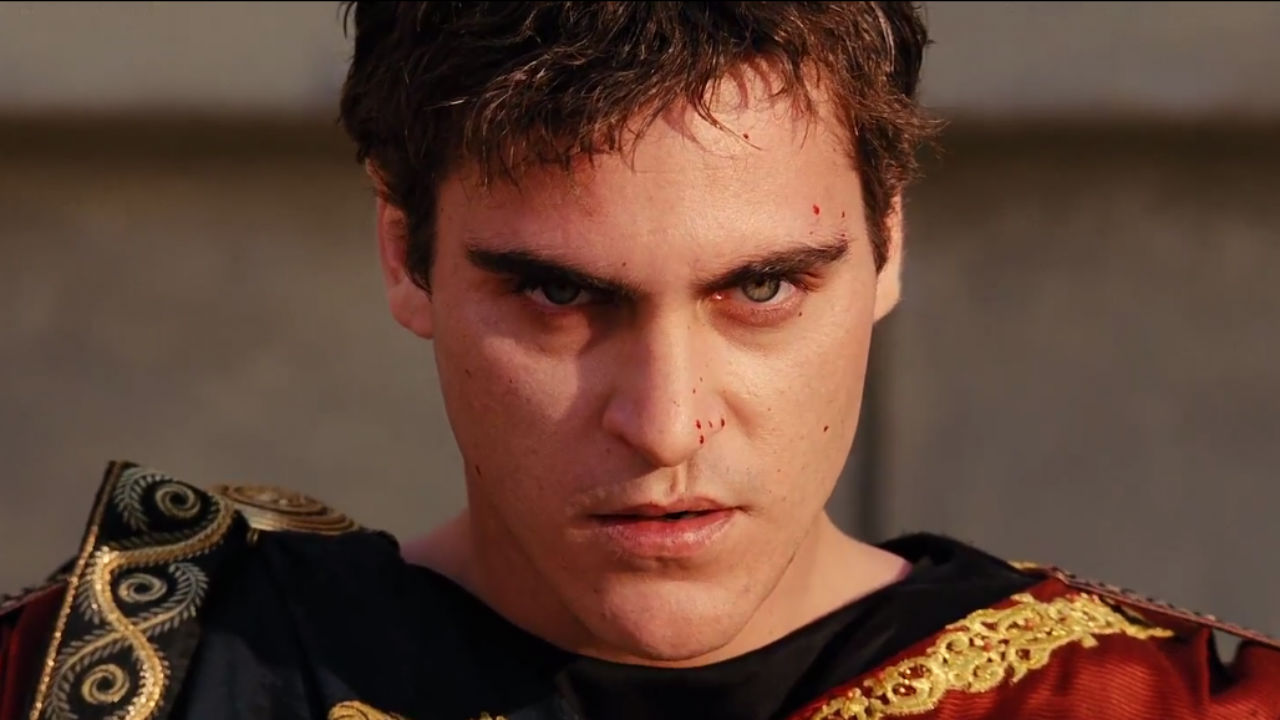
Phoenix’s Commodus is perhaps one of his most mainstream roles, at least of the second part of his career, after the child actor phase. “Gladiator” is an epic blockbuster with a taste of classic Hollywood, a captivating story of pride and revenge. The film has entered into the mythology of contemporary cinema as an example of how Hollywood blockbusters should work: Ridley Scott hits all the right spots to create a solid, even if a bit predictable movie.
It is easy to see then how a classic kind of hero such as Russell Crowe’s Maximus needed a classic kind of villain, and that was Phoenix’s task in playing Commodus. With his natural talent, he was able to infuse Commodus with an engaging personality, and made him both detestable and interesting.
The character’s conflict with his father, his brotherly hate, and his obsession with power make him an almost Shakespearean figure, and Phoenix succeeded in giving him the necessary depth.
7. Two Lovers
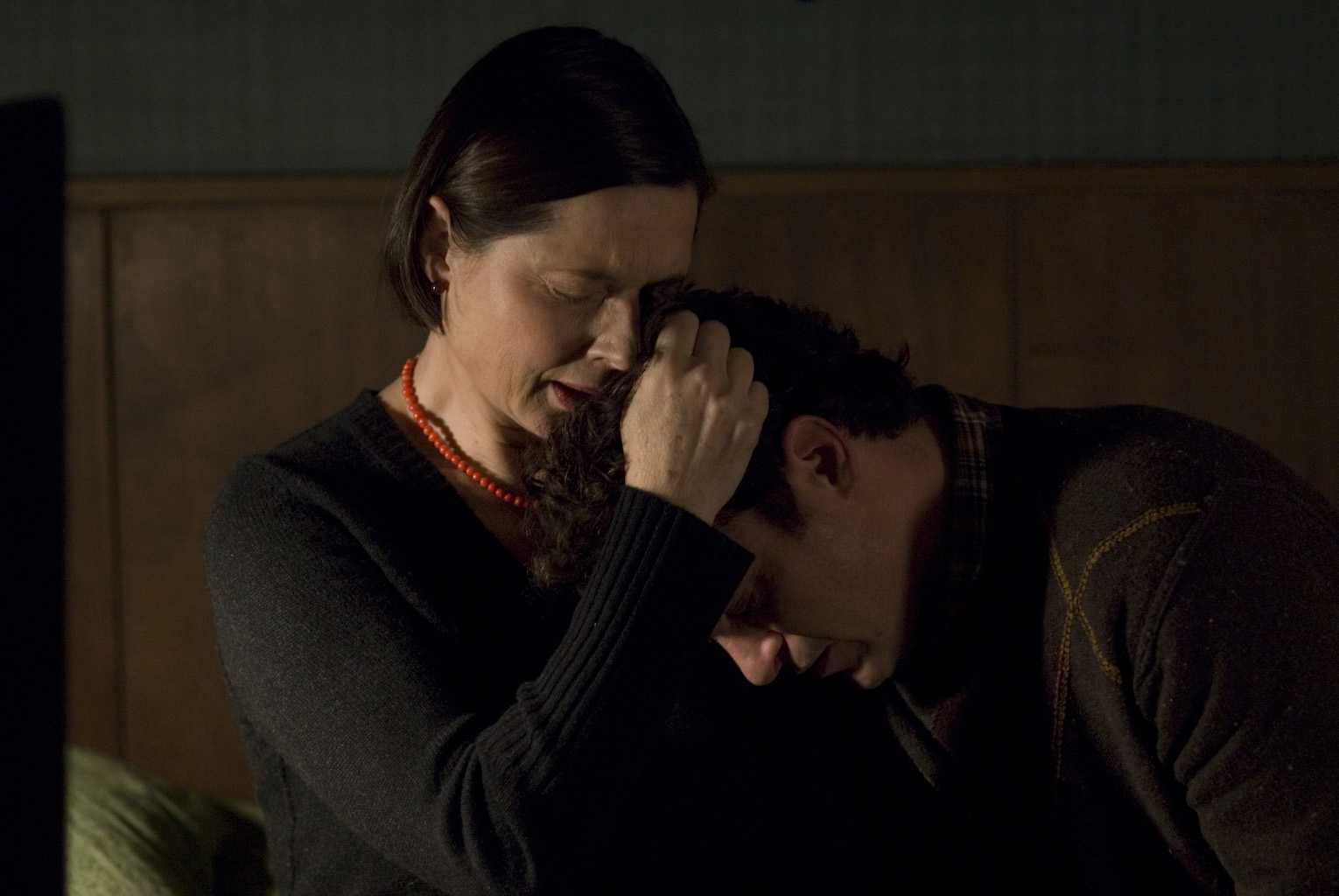
“Two Lovers” is one of the four collaborations between Phoenix and James Gray. Gray is an auteur deeply interested in the depths of the human mind, and in this film he tried to tackle the meaning of love and romanticism through the point of view of an uneasy mind. The story is inspired by “The White Nights,” a short novel by Fëdor Dostojevskij, although it goes into a considerably different direction when compared to the many other adaptations.
Phoenix plays a lonely and suicidal man who unexpectedly finds himself in the midst of not one but two potential relationships. This is a peculiar role, and is far from the usual lead in a romantic drama. His melancholy rings true, and there is no attempt at embellishing his complex and fundamentally unsatisfied soul.
Once again, Gray puts Phoenix at the core of the story, making his character the most captivating aspect of it. The best performances from Phoenix often come when he works with more restrained material, and this is one of his most emotionally resounding performances yet.
6. Walk the Line
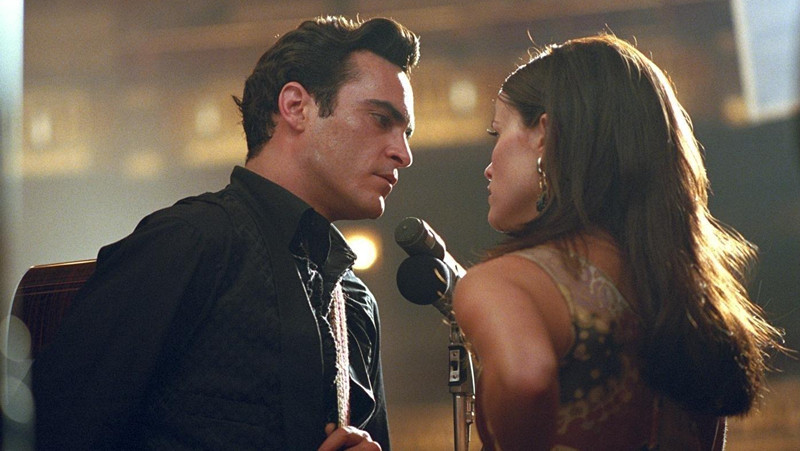
“Walk the Line,” directed by James Mangold, is one of the most iconic musical biopics of the 2000s, together with “Ray.” Similarly to “Ray,” “Walk the Line” brought a new wave of fame and respect for the actor playing the protagonist. Speaking of musical biopics, the film checks every box: the rise to fame, obsession with the art, a troubled love, and problems with addictions.
Phoenix and Reese Witherspoon, playing Johnny Cash and June Carter, give life to a movie that could risk becoming too predictable. Phoenix in particular succeeds in the demanding task of convincingly imitating such an known singer.
He proved that he was able to embark on a more physical acting endeavor (a skill that he would have later employed again) by imitating Cash’s voice and appearance. Embodying an icon, if done well, can truly be the turning point in an already successful career, and that was the case with Phoenix as well.
5. You Were Never Really Here
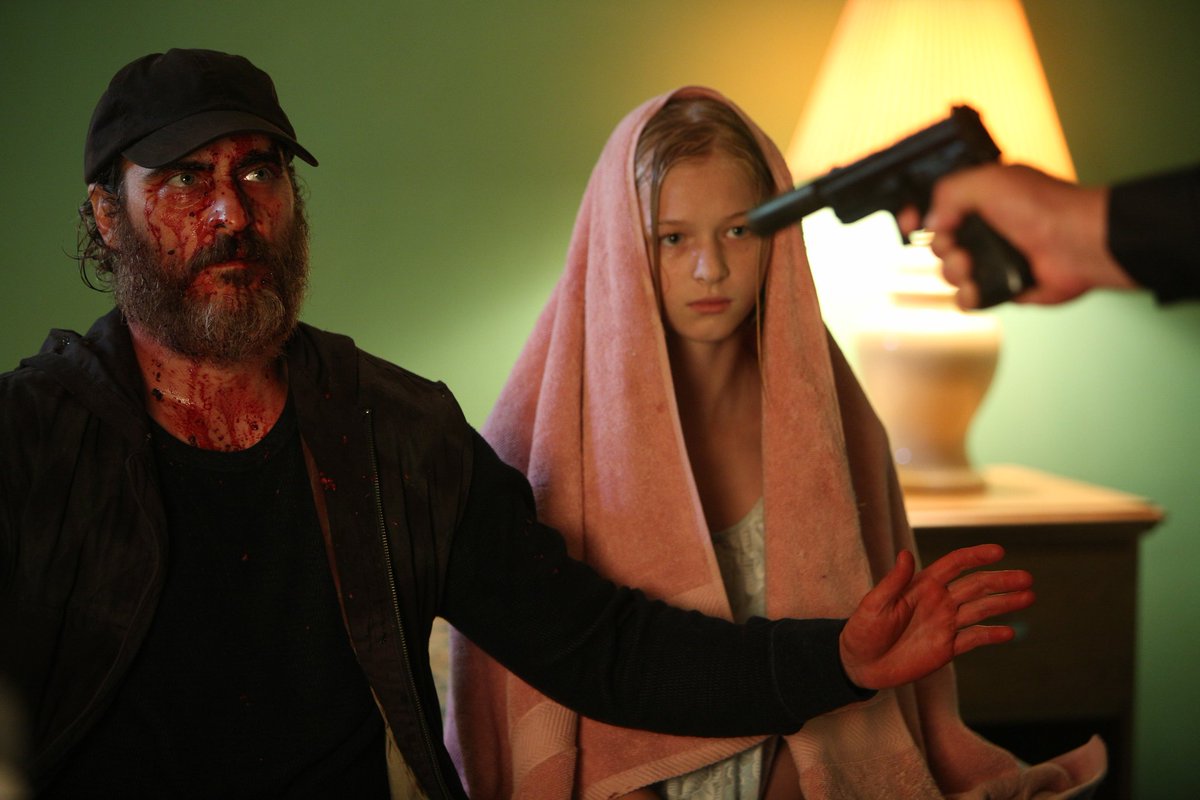
As iconic as many Joaquin Phoenix performances are, he has not won an extraordinary amount of major awards: he’s still missing an Oscar, and has won only one Golden Globe. However, in the international circuit, he recently garnered the Best Actor award at the 2017 Cannes Film Festival, for the extremely gritty “You Were Never Really Here.”
The role certainly has many of the characteristics that can make an actor shine, and become a critical darling: a tortured soul, a suppressed humanity that pushes to be released, and a general sense of believable realism.
Phoenix plays a former military man who now works as an hired gun. He moves with existential anguish through a painful world of crime, which only enhances his difficulty in dealing with his past. A performance of extreme strength and a great showcase of Phoenix’s ability.
4. The Immigrant
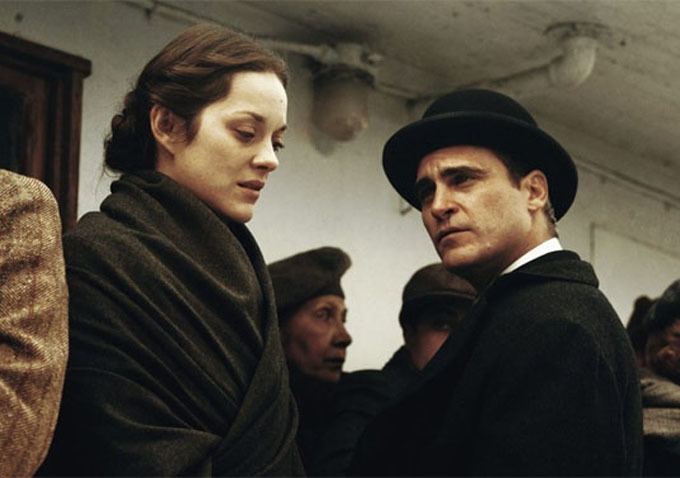
“The Immigrant” continues James Gray’s series of collaborations with Phoenix. This 2013 melodrama about Polish immigration in 1920’s New York is an underrated work of recent cinema, maybe for its difficult subject, the exploitation of the women who came to America to look for work and opportunities, but also as a consequence of its release strategy, since the Weinstein Company kept the film unreleased for more than a year in the hopes of some changes to the ending.
“The Immigrant” ultimately made its debut at Cannes in 2013. It was appreciated by critics, as it showed a clear inspiration from classic cinema, and a personal touch brought by Gray’s own personal family history. It is hard to decide who has the best performance between Phoenix and Marion Cotillard.
Phoenix plays Bruno Weiss, a Jewish man in control of a prostitution ring in which Cotillard’s character, Polish immigrant Ewa Cybulska, soon falls into. As a villainous role, Weiss proved multi-faceted. Far from being a straight up “bad guy,” he is at times sympathetic, at times inhumane. Gray wrote the role for Phoenix, and it shows: Bruno Weiss is perfectly tailored for an actor who is asked to be extremely engaging, and viscerally convincing, never one dimensional. This is one of Phoenix’s most complete performances.
3. Inherent Vice

In 2014, Paul Thomas Anderson embarked in a challenging task, adapting one of Thomas Pynchon’s most convoluted novels, “Inherent Vice.” The film required an ensemble cast of rare strength, led by a central character, Detective Larry Sportello, who finds himself in a storm of events he cannot even try to control.
Phoenix took the role, after Robert Downey Jr. was for a long period in talks for it. Sportello could easily top a ranking of cinema’s strangest detectives. Anderson likened the film to a Cheech and Chong adventure, and the protagonist certainly embodies that lethargic nature.
Phoenix captures the playful nature of the role, playing it as low key as needed, but also engaging in broader physical acting. Being that “Inherent Vice” is a film that is sure to become a cult classic, we can expect an increasingly bigger appreciation for the character of Larry Sportello in the years to come.
2. Her
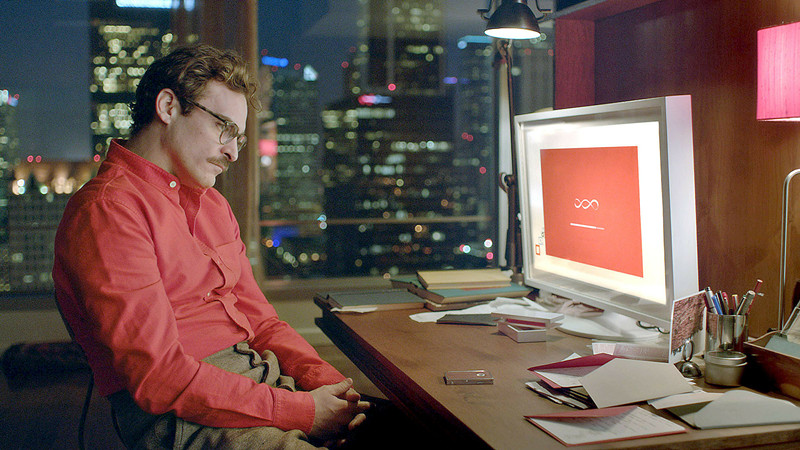
This is one of the most measured performances by Joaquin Phoenix. He plays Theodore Twombly, a timid man who falls in love with an A.I., voiced by Scarlett Johansson. “Her” is a gem of contemporary cinema: it has a smart and thought-provoking story by writer/director Spike Jonze, and despite having being conceived in the early 2000s, the core of the narrative is particularly resounding to the audience of today’s hyper-technologized world.
As in many other movies of his, Phoenix’s performance benefits of the dynamic with a co-protagonist, who in this case is only presented in voice form. The romantic dialogue between Twombly and the A.I. voiced by Johannson is extremely believable, and this happens thanks to the kindness and vulnerability that Phoenix’s face conveys. Adding to that, he shines by convincingly creating a substantial difference between his grey, unhappy everyday persona, and his happier state when he talks to his virtual lover.
1. The Master
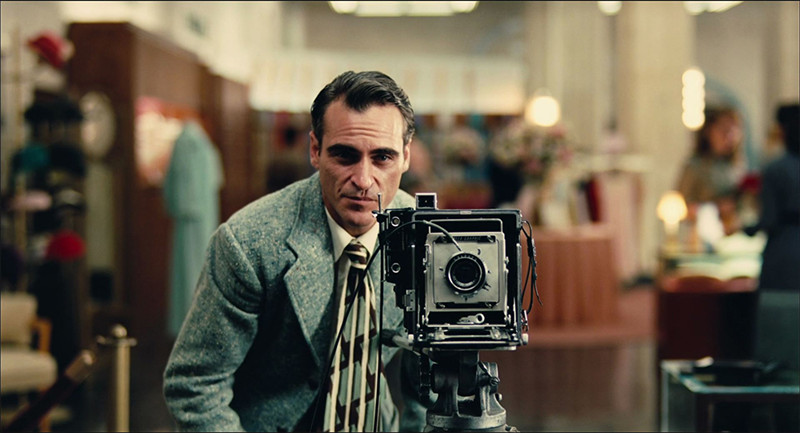
“The Master” (2012) is the first collaboration between Phoenix and Paul Thomas Anderson, whose previous film had been “There Will Be Blood,” which resulted in a Best Actor Oscar for Daniel Day-Lewis. Proving that Anderson is one of the best directors working when it comes to giving value to actors, Phoenix was also nominated for an Oscar, and also won the prestigious Coppa Volpi at the Venice Film Festival for “The Master.”
The film is a battle of acting performances between Philip Seymour Hoffman and Phoenix. Hoffman plays a cult leader (largely inspired by Scientology founder L. Ron Hubbard) who meets a troubled veteran, played by Phoenix. The clash of their personality at first makes them friends, but the complex nature that characterizes them both creates a more ambiguous dynamic.
Phoenix shines as the restless Freddie Quell, and put particular attention on the physical aspect of his performance as well, employing a peculiar walk and gestures. “The Master” was Phoenix’s return after his acting hiatus, and the beginning of a new phase of Phoenix’s career, his most mature and confident yet, in which he could exploit his natural talent in some as yet unseen ways.